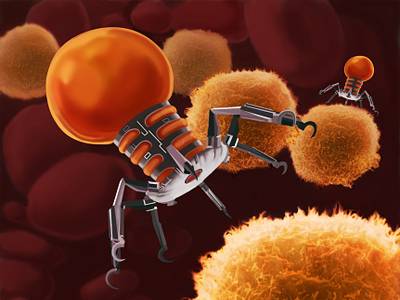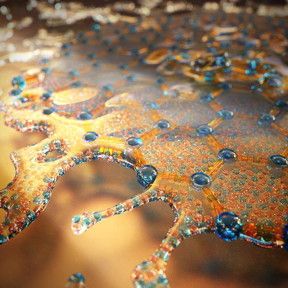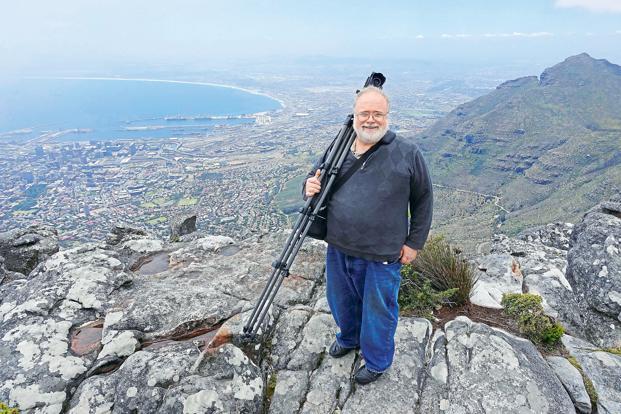One of my favorites for 2016 — smart contact lenses.
Researchers at RMIT University and the University of Adelaide have joined forces to create a stretchable nano-scale device to manipulate light.
RMIT University.

One of my favorites for 2016 — smart contact lenses.
Researchers at RMIT University and the University of Adelaide have joined forces to create a stretchable nano-scale device to manipulate light.
RMIT University.

Creating Qubit from a CMOS transitor.
Scientists make a qubit at the sharp edges within a silicon nanowire transistor.
Scientists at the University of Southampton have made a major step forward in the development of digital data storage that is capable of surviving for billions of years.
Using nanostructured glass, scientists from the University’s Optoelectronics Research Centre (ORC) have developed the recording and retrieval processes of five dimensional (5D) digital data by femtosecond laser writing.
The storage allows unprecedented properties including 360 TB/disc data capacity, thermal stability up to 1,000°C and virtually unlimited lifetime at room temperature (13.8 billion years at 190°C ) opening a new era of eternal data archiving.

Research, innovation, discovery, and evolution that causes amazing science and technology disruptions is a beautiful thing. And, we each have our own story and passion in why and what drives us.
And, occasionally in our drive to make change or disruption happen; reality grounds us back on what is important and why we do what we love. In my own case is to finally see things like cancer eradicated.
A finger prick test for cancer may soon be possible as research have developed a new technology to detect disease biomarkers in the form of nucleic acids, the building blocks of all living organisms.

This is wonderful program for students wanting to learn robotics. I do believe for real AI/ traditional Robotics (not referring to nanobots or microbots) to truly accelerate in capabilities; it will require technology like Quantum.
Two young engineering students are making robotics more accessible to enthusiasts across the country
A spartan apartment at a nondescript housing society in Pashan is filled with robots of all shapes and sizes. Among the curious looking machines are two robotic hands that mimic the movement of a human body and a large quadcopter that looks as if it’s ready to fly. This is the working space of College of Engineering, Pune (CoEP) alumni Amol Gulhane and Pratik Pravin Deshmukh — the 20-something founders of Robolab, a venture that’s making robotics accessible to the masses by building robotics labs across the country.
“We were inspired to start Robolab because of two reasons. Being members of the Robot Study Circle, a college group dedicated to robotics at CoEP, we were passionate about building robots. Although we were specialising in electronics and telecommunications, robotics brought out the best in us. When the time approached for graduation in 2013, the thought of having to give up our hobby was depressing. So, the idea to start Robolab in November 2013 was born out of the desire to stay true to our calling,” said Deshmukh. The second reason, revealed the youngsters, was more idealistic. In the course of launching Robolab, the duo conducted a survey to find out the number of colleges in India having labs dedicated to robotics. “We found out there were just a handful of colleges like the IITs who had such labs. Since not many people can make it to the IITs, we decided to take robotics to the masses with Robolab.”

Liquid metal.
Abstract: Graphene is going to change the world — or so we’ve been told.
Since its discovery a decade ago, scientists and tech gurus have hailed graphene as the wonder material that could replace silicon in electronics, increase the efficiency of batteries, the durability and conductivity of touch screens and pave the way for cheap thermal electric energy, among many other things.

Making Nanowire Lasers
Feb. 11, 2016 — Scientists have found a simple new way to produce nanoscale wires that can serve as bright, stable and tunable lasers — an advance toward using light to transmit data.

Post-Human
Radically often it seems like something out of science fiction. But every day that passes we get closer to the technological singularity.
Visit: http://

Very nice; another article on photonic crystal.
Scientists have created a crystal structure that boosts the interaction between tiny bursts of light and individual electrons, an advance that could be a significant step toward establishing quantum networks in the future.

Brand’s view and concerns about hacking driverless cars are valid. And, I do believe in time that government will eventually catch up in passing some laws that will make companies ensure that their technology is safe for consumer usage and are safe for the public. I just hope that the pendulum does swing too far to the other side of over regulation.
It is not easy to slot Brad Templeton. What do you make of a person who is not only the networks and computing chair at Singularity University in Silicon Valley but also a software architect, a director of the Foresight Nanotech Institute, board member of the cyberspace watchdog Electronic Frontier Foundation, the first person to have set up an Internet-based business, a futurist lecturer, hobby photographer, artist, as well as a consultant on Google’s driverless car design team?
In a phone interview from the US, Templeton, who will be in India this month as a key speaker during the SingularityU India Summit (to be held in association with INK, which hosts events like INKtalks—a platform for the exchange of cutting-edge ideas and inspiring stories), shared his views on driverless cars, the perceived threat from intelligent machines and censorship of the Internet. Edited excerpts:
Driverless cars are not hacker-proof and may find it difficult to navigate chaotic traffic. How are we addressing such issues?
It’s absolutely true that people are concerned about security of these cars, but it is wrong to presume that people in the media learnt about this before those who built the driverless car. The people who built the car are working to make the car secure. They won’t be able to do it perfectly, but they are going to get there. The Google team certainly has the most miles to its credit. Right now over 2 million km in automatic mode, driving around mostly in California. The chaotic driving in India is slower than some of the roads in Europe or North America. And it is actually easier to do slower and chaotic driving than faster. You get more time to stop, perceive the situation and make accurate moves. The real challenge is that in many chaotic driving situations, there are unwritten rules so you have to figure out how to sort of, play a game with the other cars. It may mean that some of the more chaotic places may have to clean up their act a bit if they want to have a technology like this.